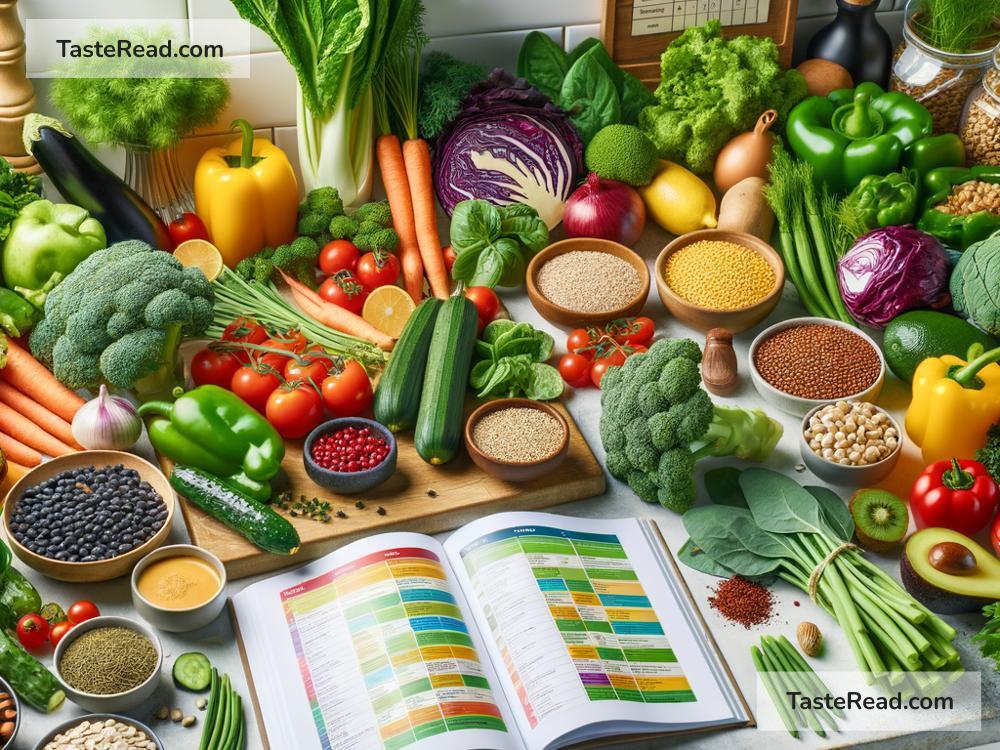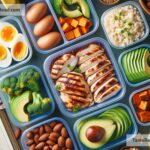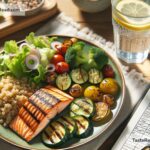How to Plan Meals for Optimal Nutrient Absorption
Eating a balanced diet is essential for maintaining good health, but did you know that how you plan your meals can impact how much of the nutrients your body absorbs? Even if you’re eating highly nutritious foods, your body might not effectively process or absorb those nutrients. This is why understanding how to optimize nutrient absorption is key to making the most of your meals. Don’t worry—it’s not as complicated as it sounds. In this article, we’ll break it down into easy tips so you can make informed decisions about your meals.
Why Does Nutrient Absorption Matter?
Before diving into tips, it’s important to understand why nutrient absorption matters. When you eat, your digestive system breaks down food into smaller components like vitamins, minerals, fats, proteins, and carbohydrates. These nutrients are then absorbed into your bloodstream to fuel your body and keep it functioning properly. However, certain factors—like food combinations, preparation methods, and even the time of day—can impact how efficiently your body absorbs these nutrients.
By planning your meals with nutrient absorption in mind, you can improve your energy levels, support your immune system, and ensure your body gets everything it needs to thrive.
Tips for Planning Meals for Better Nutrient Absorption
1. Combine Foods for Synergy
Some nutrients work better together, while others can interfere with absorption. Here are a few examples:
- Pair Vitamin C with Iron: Vitamin C can help your body absorb iron more efficiently. For example, eat spinach (a good source of iron) with oranges, tomatoes, or bell peppers, which are rich in vitamin C.
- Add Healthy Fats for Fat-Soluble Vitamins: Vitamins A, D, E, and K need fat to be absorbed properly. For example, drizzle olive oil over your salad or eat avocado with carrots to ensure you’re absorbing these vitamins.
- Avoid Calcium and Iron Together: Calcium can block your body’s ability to absorb iron. If your meal includes dairy products (rich in calcium), try spacing it out from iron-rich foods like beans and red meat.
2. Cook Some Foods
While raw fruits and vegetables are great for their fiber content and ease of digestion, cooking certain foods can actually make their nutrients more bioavailable (easier for your body to absorb). For example:
- Cooking tomatoes increases their levels of lycopene, an antioxidant good for your heart and skin.
- Lightly steaming carrots and spinach can increase the availability of certain vitamins like beta-carotene.
Be careful not to overcook, though! Overheating can destroy some nutrients, such as vitamin C.
3. Eat Probiotic-Rich Foods
Your gut health plays a big role in absorbing nutrients. A healthy gut means better digestion and nutrient absorption. Probiotic-rich foods such as yogurt, kefir, kimchi, and sauerkraut help keep your gut bacteria balanced, aiding in a more efficient digestive process.
Consider pairing probiotics with prebiotics (foods that feed healthy gut bacteria) like bananas, onions, and garlic. Together, they create the perfect environment for nutrient absorption.
4. Don’t Forget About Hydration
Water doesn’t provide nutrients, but it helps transport them through your body. If you’re dehydrated, it can make it harder for nutrients to reach your cells. Drink plenty of water throughout the day, and pair meals with water or unsweetened herbal teas to stay hydrated.
Timing Matters, Too
When you eat can also play a role in nutrient absorption. Here are a few timing tips to keep in mind:
- Eat Breakfast: Breakfast helps “wake up” your digestive system and sets the stage for better nutrient absorption throughout the day. Include nutrient-rich foods like oats, eggs, fruit, and yogurt to start your day off right.
- Space Out Meals: Eating smaller, balanced meals throughout the day can keep your digestive system working efficiently. Avoid overeating in one sitting, as this might overwhelm your body’s ability to absorb nutrients effectively.
- Post-Workout Nutrition: After exercising, your body is primed to absorb nutrients like protein to repair muscles and carbs for energy replenishment. Plan a post-workout snack like a protein smoothie with bananas or a handful of nuts and fruit.
Keep an Eye on Avoidable Absorption Blockers
Some factors can hinder your body’s ability to absorb nutrients, such as:
- Excess Coffee or Tea During Meals: Coffee and tea contain tannins, which can inhibit iron absorption. If you’re drinking them, it’s better to enjoy them between meals rather than during them.
- Alcohol: Alcohol interferes with your digestive system’s ability to absorb key vitamins and minerals. Limit your intake if possible.
- Processing and Refined Foods: Many processed foods are stripped of nutrients and may contain additives that hinder absorption. Opt for whole, minimally processed foods whenever you can.
Plan Ahead for Balanced Meals
When it comes to optimizing nutrient absorption, planning is your best friend. Take time once a week to write out a simple meal plan. Incorporate a variety of whole foods that include protein, healthy fats, carbohydrates, fruits, and vegetables. Include foods rich in specific nutrients your body needs, and think about combinations that enhance absorption, like pairing iron-rich foods with vitamin C.
Conclusion
Optimizing nutrient absorption isn’t about changing everything you eat—it’s about tweaking your habits to make the most of your meals. By combining foods strategically, cooking them appropriately, taking care of your gut health, and being mindful of timing, you can help your body absorb the nutrients it needs to stay healthy and strong. Small steps can make a big difference, so start incorporating these tips into your meal planning today!


